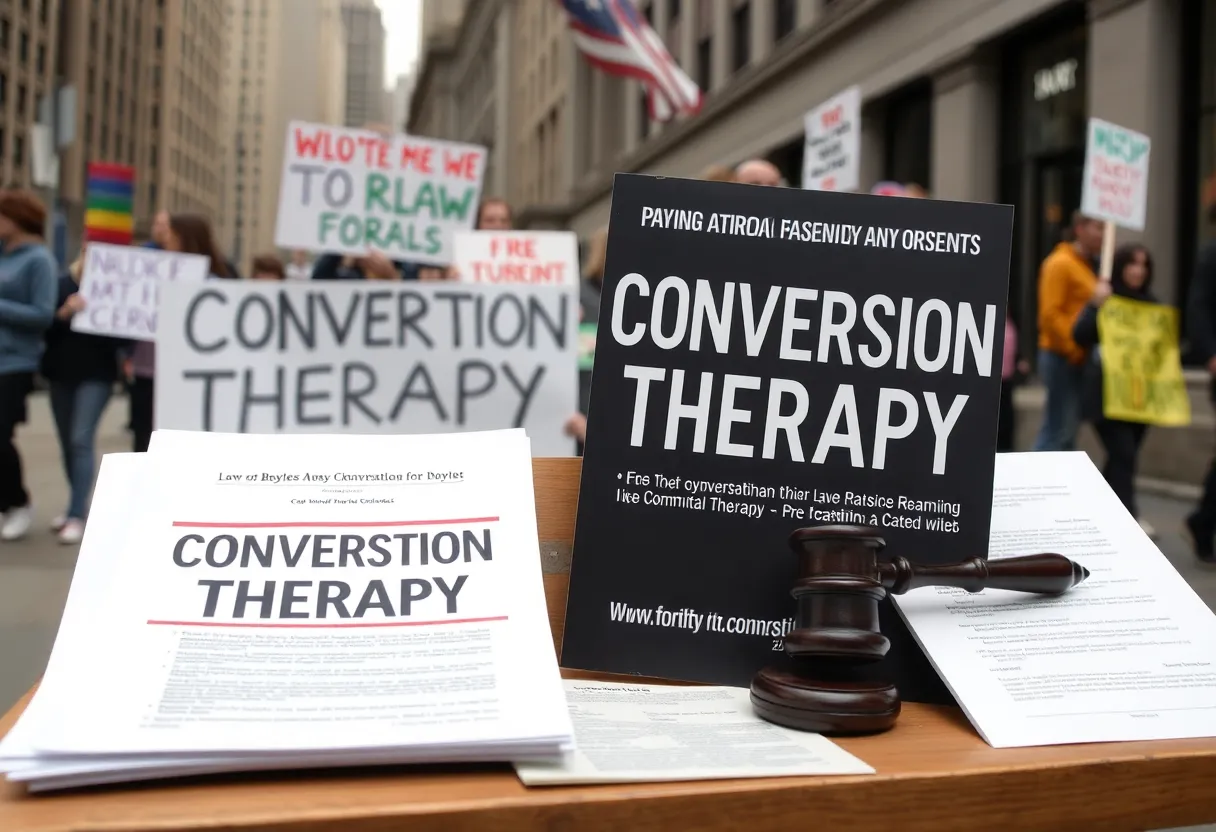News Summary
Columbia faces controversy as Attorney General Alan Wilson calls for the repeal of its ordinance banning conversion therapy for minors. Enacted in June 2021 to protect LGBTQ youth, the ordinance has never been enforced. Wilson argues that it conflicts with state laws, igniting a legal and ethical debate. Mayor Daniel Rickenmann questions the motives behind Wilson’s demands, which local LGBTQ groups view as a direct threat to vulnerable youth. As discussions unfold, the outcome may significantly affect LGBTQ rights in the region.
Columbia’s Controversial Conversion Therapy Ordinance Under Fire
The city of Columbia is currently caught in a swirl of controversy as Attorney General Alan Wilson pushes for the repeal of an ordinance that bans conversion therapy for minors. This demand, made on April 22, 2025, has set the stage for a heated debate about the rights of individuals and the responsibilities of local governments.
A Look Back at the Ordinance
In June 2021, Columbia enacted a 4-3 vote ordinance prohibiting licensed healthcare and mental health providers from offering conversion therapy to minors. This law aimed to protect LGBTQ youth from practices deemed harmful and was born out of advocacy from local LGBTQ communities and mental health professionals. The measure carries fines of up to $500 for any violations. However, it has remained largely dormant, as the ordinance has never been enforced, with no recorded complaints or fines during its existence.
The Legal Tug-of-War
Wilson argues that the city’s ban is unconstitutional. He claims it conflicts with the 2022 Medical Ethics and Diversity Act, which is designed to restrict local laws that would limit medical care provided to patients. Wilson’s move has sparked questions about legality, morality, and politics, especially as he is viewed as a potential contender for the governor’s seat in future elections.
Politics or Principles?
In response to Wilson’s letter, Columbia’s Mayor, Daniel Rickenmann, has raised eyebrows about the timing of the attorney general’s demands. He expressed curiosity over the motivation behind this challenge, given that the ordinance had never been utilized. Rickenmann’s worries point toward a possible political stunt, questioning whether Wilson is truly representing the interests of the citizens or playing a broader game in the political arena.
The Opposition Weighs In
Local LGBTQ advocacy groups have stepped up to condemn Wilson’s request, viewing it as a direct threat to vulnerable LGBTQ youth in the area. They strongly argue that repealing the ban would only further amplify fear and discrimination against those already marginalized. In addition, many prominent medical organizations, including the American Academy of Pediatrics, have voiced strong opposition to conversion therapy, categorizing it as a damaging practice that attempts to alter a person’s sexual orientation or gender identity.
Religious Perspectives and Ethical Concerns
Wilson’s letter to the city does emphasize a commitment to religious freedom for faith-based counselors. He argues that the perception of conversion therapy as harmful is a misunderstanding that deserves reconsideration. However, critics argue that such incentives toward religious liberty do not justify practices that can lead to severe psychological harm. A 2020 UN report highlighted that some conversion therapy methods can involve *extreme abuse*, raising ethical concerns that cannot be ignored.
In a related finding, a 2018 investigation revealed that there were at least nine conversion therapy groups operating in South Carolina. This discovery underscores an existing network of these controversial practices within the state, raising alarms for both advocates and health professionals alike.
The Road Ahead
Wilson has demanded a response from Columbia by May 5, 2025, threatening legal action if the city does not comply. The city’s leaders, acknowledging the weight of the situation, are planning to consult with legal counsel before they make any future decisions regarding Wilson’s demands.
In the meantime, this unfolding drama is not just a local issue; it is part of a larger national conversation about conversion therapy and the broader implications for LGBTQ rights. The dialogue is complex and revealing, with profound effects on individual lives and societal norms.
Conclusion
As the showdown between the state and the city looms, Columbia finds itself at a crossroads. Local advocates continue to defend the current ordinance as a necessary safeguard for youth, while state authorities push back in the name of broader rights and freedoms. The outcome of this legal tug-of-war will shape not only Columbia’s approach but could also ripple throughout South Carolina and beyond.
Deeper Dive: News & Info About This Topic
HERE Resources
Additional Resources
- The State
- Wikipedia: Conversion Therapy
- Post and Courier
- Google Search: Conversion Therapy
- ABC Columbia
- Google Scholar: Conversion Therapy Impacts
- News From the States
- Encyclopedia Britannica: Conversion Therapy








